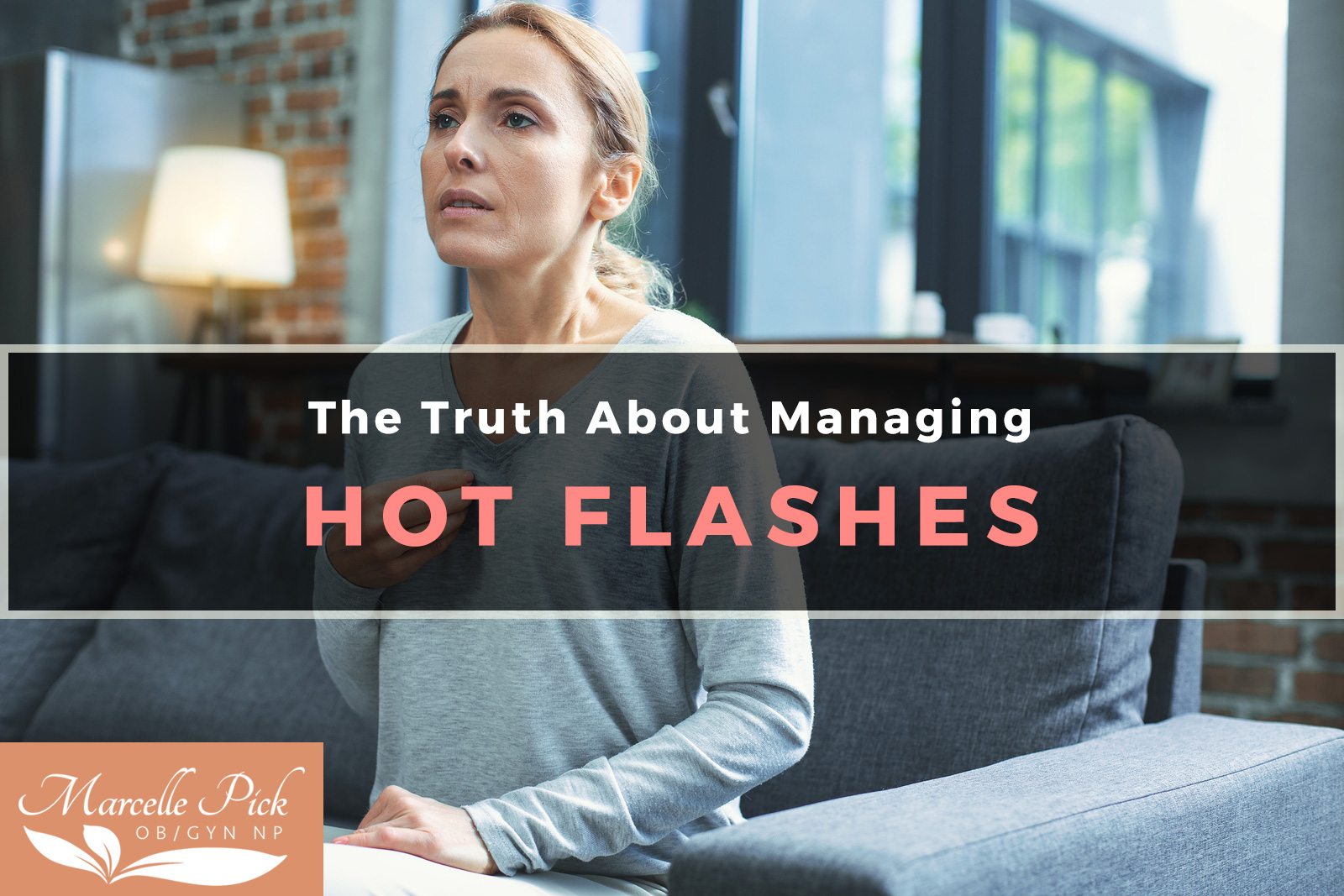How many times have you felt something going on in your body that made you think something was wrong? Have you panicked over a hot flash or mood changes because you’re convinced you must be in early menopause? Do you find yourself suddenly unable to carry on as you always have, without any idea why? I have had patients come to see me who are used to being high functioning working women, able to juggle the responsibilities of home, work and a social life with no problem. Then, all of a sudden, they find themselves unable to even get into their car to drive because their anxiety is so high. What is it about this time in a woman’s life that can cause such confusion and stress?
Menopause is a complex process that can bring about huge changes, both physically and emotionally. And it lasts a lot longer than many women think. Perimenopause can begin 8 to 10 years before you reach full menopause, defined as having 12 months without a menstruation cycle.
During these years, you may feel some intense physical symptoms – hot flashes and night sweats, irregular cycles with sometimes very light, sometimes very heavy flow. Though these physical symptoms can be troublesome, what I’m hearing lately is that the emotional symptoms are even more so. Anxiety can creep up out of what seems like nowhere, or you find yourself alienating the people you love because your mood swings from happy to angry and everything in between so quickly. You don’t have to sit back and watch yourself become someone you don’t understand. In fact, this is the time of life that is perfect for finding out who you are – and who you want to become! Let’s understand your menopause emotional symptoms, specifically during perimenopause.
Perimenopause and Menopause Emotional Symptoms
The average age for menopause is 52. But as I said before, perimenopause can occur for a decade, and those years can be the perfect time for self-reflection, and for finally dealing with emotional baggage that you’ve been ignoring. It’s also a great time to adjust your lifestyle – eat healthier, move more, and find out what you really love. You still have so much of life ahead of you, and as you get older and children move out or become more independent, there’s finally time for you to focus on what you want.
Menopause can seem frightening to many women – it’s a big change, a transition from one phase of life to another. The way I see it, it’s an opportunity. Instead of giving in to anxiety about this transition, embrace it. There are plenty of natural ways to relieve some of the more difficult symptoms, opening up space to reflect and make decisions about what the rest of your life will look like. Here are a few ideas to get you started:
Pay attention to nutrition. Getting the nutrients you need plays a critical role in feeling great. Women have used their cycle as an excuse to binge on unhealthy foods for so long – but giving in to those cravings might be making you feel worse! Make a commitment to treat your body well by feeding it lean, organic proteins, healthy fats, and plenty of fresh, organic fruits and vegetables. Avoid refined carbohydrates, sugar, caffeine and alcohol – all can increase uncomfortable symptoms.
Find exercise you love. Exercise can help reduce fat and help with estrogen and progesterone ratios, but when you’re feeling lousy you aren’t likely to be motivated to do something active unless you truly enjoy it. The options are endless – running, dancing, rock climbing, hiking, aerial yoga and so much more – so keep looking until you hit on one that makes your heart sing. Not only can exercise make you feel better physically, it can level out the mood swings as well!
Be less stressed. I know it’s tough to reduce the stressors in your life, but you deserve to feel your best. It doesn’t have to be all or nothing – in our modern would, you probably won’t be able to eliminate stress entirely. Start small – ask your partner to take just one responsibility off your plate, or say no to an invitation that doesn’t sound fun. Remember, the world won’t stop if you don’t do everything yourself – don’t be afraid to rely on others the way they rely on you.
Pay attention to emotions. This might be the most important step. Emotions are intrinsically connected to our physical health, and it might be time to explore where those strong emotions are coming from. Holding on to negative feelings from the past might be impacting your ability to have a great life now!
Seek herbal support. Plants and herbs support our bodies because they share some molecular features with our own hormones. This allows these plants to support our hormone production according to our body’s individual needs. Some herbs that can help reduce menopause symptoms include black cohosh, passionflower, chaste berry, and ashwagandha.
Menopause is a long road with many stages, but the road leads to somewhere wonderful – the place where you can truly be the woman you want to be. Taking the time to discover who that is, and find out what makes you feel great means you’ll be ready to make this the best phase yet!
References:
Cherney, K. (2015, December 24). Perimenopause and Menopause: What’s the Difference? Healthline.com. http://www.healthline.com/health/menopause/difference-perimenopause
Mercola, (2009 December 26) Your 7-minute guide to Natural Menopause Survival. Mercola.com. Retrieved March 27, 2017 from http://articles.mercola.com/sites/articles/archive/2009/12/26/your-7minute-guide-to-natural-menopause-survival.aspx
Pick, M. Five Steps for Natural Menopause Relief. Marcellepick.com. Retrieved March 27, 2017 from https://marcellepick.com/five-steps-natural-menopause-relief/
UHN Staff. (2015, April 2). Symptoms of Perimenopause—What Are They and How to Manage Them with Natural Perimenopause Treatment. University Health News. http://universityhealthnews.com/daily/aging-independence/symptoms-of-perimenopause-what-are-they-and-how-to-manage-them-with-natural-perimenopause-treatment/








